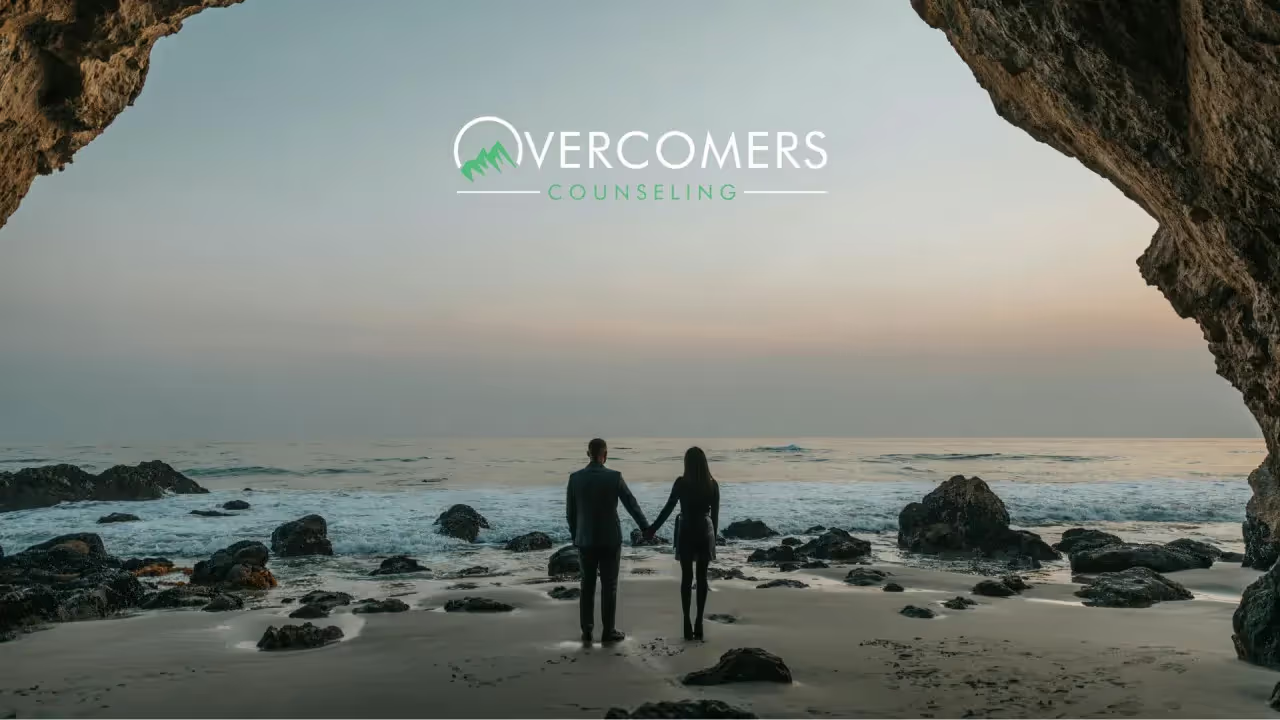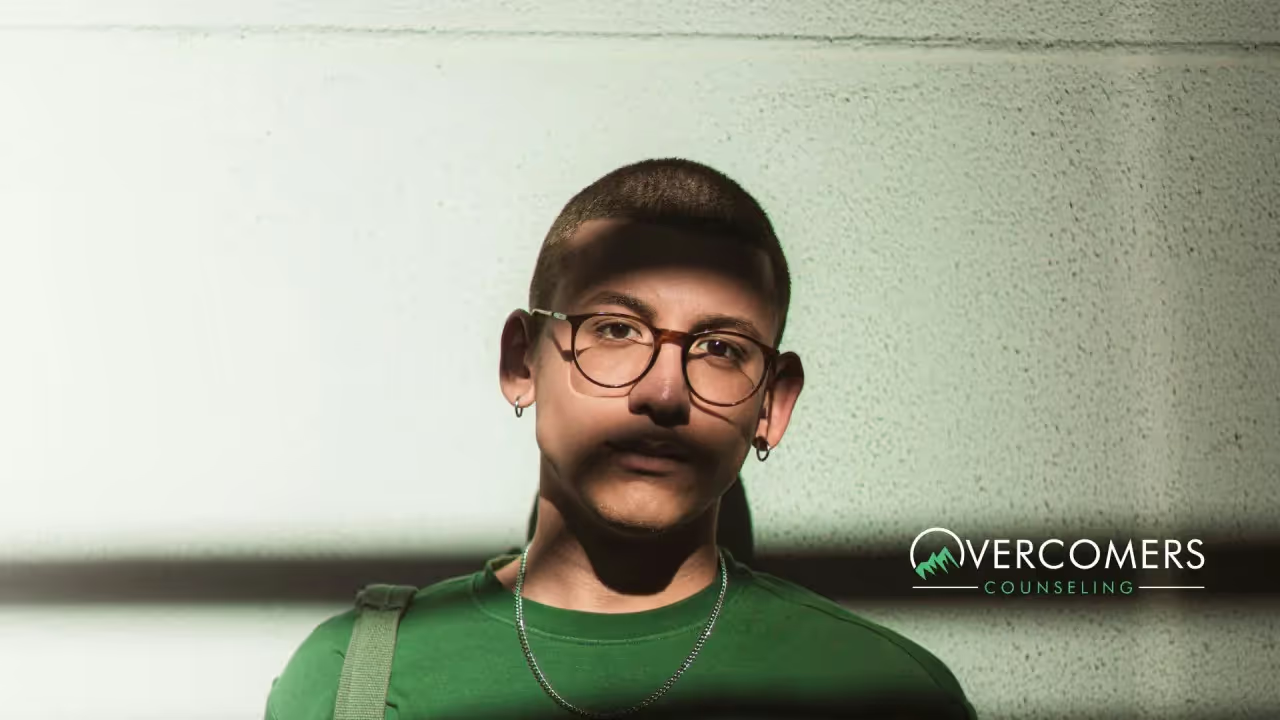Couples therapy often serves as a trusted compass guiding partners toward problem resolutions. It has earned accolades for its ability to bridge...

Couples therapy often serves as a trusted compass guiding partners toward problem resolutions. It has earned accolades for its ability to bridge communication gaps, soothe emotional scars, and reignite dwindling sparks of intimacy. However, it's crucial to understand that couples therapy isn't a universal panacea. There exist scenarios where it might not serve as the most effective remedy, and identifying these situations is key to ensuring both individuals receive the right kind of help.
In this enlightening piece, we'll explore those unique circumstances where couples therapy may not be the ideal route, providing you with a comprehensive map to traverse the intricate landscape of relationship restoration and growth.
Couples therapy is not typically recommended in cases of domestic violence, primarily because the therapeutic environment may not ensure the safety and protection of the victim. In a couples therapy setting, open communication is encouraged, but this can potentially put the victim at risk if they disclose information about the abuse. There's also a risk that the abuser might manipulate the therapy sessions to justify their actions or further control the victim. In situations involving domestic violence, individual therapy, and legal action are usually more appropriate steps.
Individual therapy can provide a safe space for the victim to express their feelings, understand the dynamics of the abusive relationship, and develop strategies for their personal safety and emotional well-being. Concurrently, legal action can provide protection and hold the abuser accountable. It's important to remember that domestic violence is a serious issue that goes beyond the realm of relationship conflicts, and it requires proper intervention from legal and mental health professionals.
Substance abuse can significantly hinder the effectiveness of couples therapy. The primary reason is that substance use disorders often lead to impaired judgment, increased volatility, and dishonesty, all of which can disrupt the therapeutic process. Furthermore, the focus in couples therapy is typically on improving communication and resolving relationship issues. However, when substance abuse is present, the addiction itself often becomes the dominant issue, overshadowing other relationship problems and making them difficult to address effectively.
In cases where substance abuse is involved, individual addiction treatment is usually necessary before or alongside couples therapy. This treatment often involves detoxification, medication (if applicable), and individual counseling to address the underlying issues contributing to the substance abuse. Once the person with the substance use disorder is in recovery, couples therapy can then be more beneficial. It's important to note that both partners may need support during this process. The non-using partner may benefit from individual therapy or support groups designed for the loved ones of individuals struggling with addiction.
Severe mental health issues can complicate couples therapy in multiple ways. For one, they often require specific, individualized treatment that might not be the focus of couples therapy. For instance, a person suffering from severe depression, anxiety, bipolar disorder, or schizophrenia may struggle to participate fully in the therapy or their symptoms may overshadow the relational issues at hand. Furthermore, certain behaviors linked to these conditions, such as extreme mood swings or withdrawal, can create a challenging dynamic in therapy sessions, potentially leading to frustration, misunderstanding, and even conflict between the couple. In such cases, individual therapy for the partner with a severe mental health issue is crucial.
This type of therapy can provide tailored strategies and treatments to manage their specific condition, which can include cognitive-behavioral therapy, medication, or other therapeutic interventions. Once the individual's mental health is more stable, couples therapy can then be introduced as a complementary approach to address relationship issues. It's also worth noting that the other partner could benefit from individual therapy or support groups to better understand their partner's condition and learn how to cope effectively.

Resistance or unwillingness to change from one or both partners can significantly undermine the effectiveness of couples therapy. Therapy involves challenging existing patterns of behavior and thought, which can be uncomfortable. If a partner is not open to this process and resists making necessary changes, it can lead to stagnation in the therapeutic process. This resistance can manifest as denial of issues, blame-shifting, or simply not putting into practice the strategies or behaviors discussed in therapy sessions.
This not only hinders progress but can also foster resentment and further tension between the couple. The success of couples therapy largely depends on the mutual willingness of both partners to engage in the process and make changes. Both partners need to be open to acknowledging their role in the relationship issues, willing to understand the other's perspective and committed to working on their personal growth and behavioral changes. This mutual willingness can foster a productive environment in therapy, where both partners are actively working towards improving their relationship.
It's important to remember that therapy is not a magic fix; it requires effort, patience, and commitment from both partners.
Couples therapy can be a highly effective tool for addressing relational issues and fostering healthier dynamics between partners. However, it's important to acknowledge that certain factors, such as severe mental health issues and unwillingness to change, can complicate the therapeutic process. In such cases, alternative or complementary approaches, including individual therapy, self-help books, online counseling, and even mindfulness practices, may be beneficial.
Regardless of the approach chosen, the key to successful therapy lies in both partners' willingness to engage in the process and make necessary changes. Couples must seek help when needed and choose the most appropriate form of therapy for their situation.
To get started, locate a certified marriage and family therapist who is covered by Tricare using their "Find a Doctor" tool.
After you've found a suitable therapist, schedule an initial evaluation. If the therapist determines that marriage counseling is necessary for treating a diagnosed mental health condition, they will submit a request for approval to Tricare.
No, you don't necessarily have to go to counseling together. In some cases, it may be more helpful for each spouse to meet with the counselor individually. This can be a good way to address specific issues that one spouse may be struggling with.
Yes, Tricare does cover telehealth services, including mental health counseling sessions conducted over a secure video conference.
Trust is built over time through positive experiences and interactions. However, it can be difficult to say how long it will take to build trust in a particular relationship as it varies from couple to Some signs that trust is present in a relationship include feeling safe to be yourself, being able to rely on your partner, and feeling like you can share anything with them..
No, couples counseling can be beneficial for couples at any stage of their relationship and with varying levels of difficulties. Even couples who have a strong foundation can benefit from counseling to enhance communication, deepen emotional connection, or navigate life transitions. Seeking professional guidance early on can prevent minor issues from escalating into more significant problems.
Yes, it's completely normal. Starting therapy can feel daunting as it often involves discussing sensitive topics. It's important to remember that it's okay to feel this way and that your therapist is there to support you.